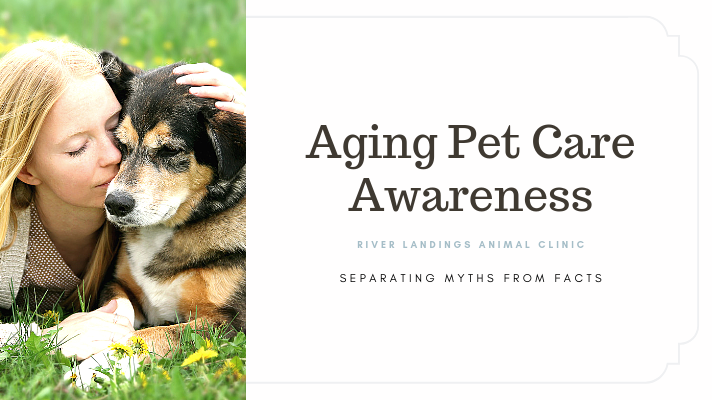Help your pet live a long healthy life.
A comment made frequently by pet owners is that pets don't live long enough. As veterinary medicine advances and pet lover's awareness grows, longer and healthier life spans are possible.
Average pet lifespan varies greatly between dogs, cats and breeds. That said, I was surprised by a recent survey of more than 1,000 people by PetAg, Inc. that showed one-third of American pet owners don’t know when their pet will become a senior. With 71 million pet-owning households in the U.S. alone, this "one-third" statistic translates to millions of households that do not know how to prepare for and provide the best care during their pet's senior years.
Knowing when a pet is a "senior" will help people make appropriate changes in diet, exercise and health examination schedules to ensure a long, healthy life of their pet.
As a general rule of thumb, dogs and cats are considered "senior" around age seven. Larger dogs sooner (age 5 or 6), and smaller dogs later (age 8 or 9). Dogs have such a large variety of breeds and sizes that there isn't a single age that automatically translates to senior status.
The most accurate way to plan for your pet's senior years is to make an appointment with your veterinarian to discuss your pet's specific needs and age-related plan for optimal health.
Here are some age-related myths from the Aging Pet Care Awareness Survey:
MYTH: Pets and their owners age differently.
FACT: While the rate at which pets age is certainly different than humans, the changes seen with advancing age are very similar: changes in weight (gain or loss), dental problems, arthritic joints and heart troubles, to name a few. "Many of the same health and wellness strategies may be implemented in pets to increase longevity," notes Dr. Kelly Swanson, an assistant professor at the University of Illinois who teamed with PetAg to design the survey. A wellness/geriatric examination with your veterinarian is the perfect time to discuss an appropriate senior diet, supplements or medications to ease the pain of arthritis, and schedule a dental cleaning to keep teeth, gums, heart and liver healthy.
MYTH: As long as my pet isn't overweight, it isn't a major health concern.
FACT: While obesity is a huge health concern and one that actually "ages" animals faster, sudden weight loss or being chronically underweight is also a serious health concern. Diseases such as cancer, kidney failure, and Diabetes Mellitus can cause weight loss along with other symptoms, and must be addressed for optimum health.
At the other end of the body weight spectrum, two of the age-related symptoms most concerning to survey participants — aching joints (55.7%) and lack of energy (36%), are common symptoms of obesity that can be managed with proper diet and exercise.
MYTH: Exercise and engaging toys are the best ways to prevent cognitive decline.
FACT: Cognitive decline, or geriatric dementia, is something that is most often associated with human seniors, but pets are prone to age-related dementia, too.
Dementia in pets may manifest in different ways, most commonly: inappropriate vocalization (barking or meowing in the middle of the night), loss of house training (urinary accidents), getting "lost" in a corner or part of the house, and not interacting with family members as before.
The general confusion from dementia along with the above behavior changes may cause additional stress/fear/anxiety for the pet as well as for the human family members.
From the study: "maintaining proper levels of exercise can help maintain cognitive function, but Dr. Swanson explained that there is more evidence supporting dietary intervention, including the use of nutritional supplements. He suggests looking for products that include antioxidants (i.e. vitamins E, C and beta carotene) or those with omega-3 fatty acids." Please check with your veterinarian to see what product(s) or medications may be able to help your senior pet.
Call us at 941.755.4592
Schedule an appointment with your vet today to talk about your aging pet’s health.
Hear From Us Again
Don't forget to subscribe to our email newsletter for more recipes, articles, and clinic updates delivered to your inbox (here). Or, you can keep up to date by liking and following our Facebook page (here).
Related: We have more information under our dog health tags.


